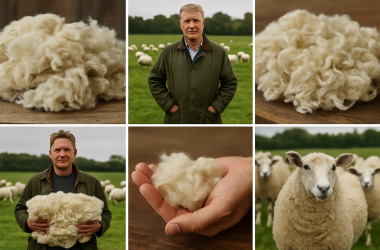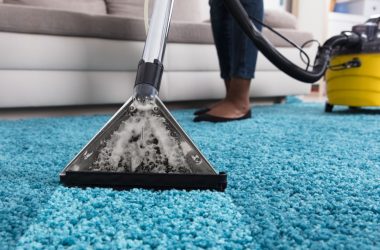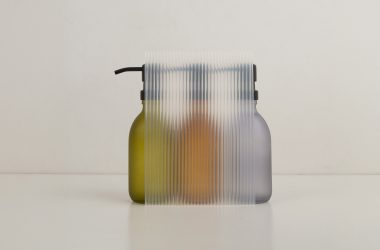Last Updated on: 23rd April 2025, 04:29 pm
In a mattress industry increasingly driven by profit margins and globalised supply chains, one heritage manufacturer is making a bold stand for sustainability and local sourcing.
The Wrought Iron and Brass Bed Company, proudly holding a Royal Warrant and rooted in Norfolk, has just launched its Traceable Wool Mattress Collection. This initiative sets a new benchmark in ethical sourcing and craftsmanship, breaking away from traditional supply models that often neglect the origin and value of raw materials.
The collection is made exclusively with hand-teased British wool. However, rather than purchasing from a single dominant supplier, the company has cultivated a diverse supply chain of independent UK farms. These range from modest homesteads with just a few sheep to larger farms managing thousands. Each is paid above the market rate, ensuring timely and fair remuneration that supports the long-term viability of even the smallest producers.
The Current Model: Retail Success at the Expense of Farmers
For many UK sheep farmers, wool has become economically unviable. With the value of fleece in sharp decline, payments from British Wool frequently fail to cover basic shearing costs. Some farmers have even resorted to burning fleece rather than selling it at a loss.
“We’ve seen the disconnect up close,” says Amanda Oldfield, Managing Director and founder of Wrought Iron and Brass Bed Co. “Farmers are being squeezed while the market keeps charging more. It’s a model that rewards volume and convenience — not fairness, sustainability, or true quality.”
By rejecting the traditional, centralised wool trade model, Wrought Iron and Brass Bed Co. is proving that ethical production can also be economically sound. Its new mattresses offer premium quality, traceability, and a business model that restores genuine value to British wool.
A Cooperative-Led Sourcing Model
Rather than purchasing from a centralised depot or aggregator, the company has built a small cooperative of British farms. Some are multi-generational businesses on the moors. Others are new entrants with a few dozen animals. This diverse model reflects the real face of British sheep farming and directly supports those who are often left behind in mass-market economics.
“The reality is that larger farms can often survive on meat alone,” says Amanda. “But smaller farms rely heavily on wool. By paying more, and paying quickly, we’re helping rebalance an economy that’s been skewed for too long.”
The company hopes this model will inspire other manufacturers to reconsider their sourcing chains, not just from an ethical standpoint, but as a business opportunity. “Consumers are ready for products with meaning, provenance, and principle,” Amanda adds. “And we believe the future belongs to companies who are willing to lead, not follow.”
Handcrafted in Britain – Built to Last
Each mattress in the Traceable Wool Collection is handmade using traditional techniques, including hand-teasing of wool — a process that enhances comfort, airflow, and longevity.
There are no foams, no fillers, and no synthetic fire retardants — just layers of natural fibres like British wool, alpaca, cotton, horsetail, and cashmere (in the Signature Collection).
The company has designed three mattress ranges to cater to different needs:
- Natural Comfort Collection – Combining adaptive pocket springs with hand-teased wool and cotton, this range offers restorative comfort, temperature control, and support. From £1,149 (King Size)
- Bedstead Collection – A no-turn design made with practicality in mind, using breathable natural fibres and a balanced spring system. From £899 (King Size)
- Signature Traceable Collection – The flagship range, featuring a chemical-free build with the most luxurious natural materials, 100% traceable to the farm. From £3,949 (King Size)
Why Traceability Matters Now More Than Ever
The growing consumer demand for traceability has put pressure on brands to show their working. But transparency without real-world impact is just marketing. This collection offers traceability with teeth — including named farm sourcing, direct engagement, and on-the-ground insight into how the wool was raised and handled.
It’s a genuine effort to realign customer values with production practices — not just because it sounds good, but because it’s what the industry should have been doing all along.
The Environmental Cost of the Current System
Beyond economic fairness, there’s a clear ecological argument for change. Unsold or underpaid wool is often treated as waste, even though it is biodegradable, renewable, and naturally fire-retardant. In contrast, the foams and petrochemical fillers used by mainstream manufacturers are resource-intensive and land-fill bound.
“Wool is one of the most sustainable materials on earth,” Amanda says. “It regulates temperature, repels dust mites, and doesn’t require flame-retardant chemicals. Ignoring its value is not just bad economics — it’s bad for the planet.”
Wrought Iron and Brass Bed Co.’s direct-to-farm model also helps reduce carbon emissions, bypassing the delays and detours that fleece typically endures when processed through the centralised supply chain.
Rethinking the Supply Chain — from Soil to Sleep
As sustainability becomes a non-negotiable in modern manufacturing, the question is no longer “can we afford to do this?” — but rather, “can we afford not to?”
This collection is a blueprint for what mattress manufacturing can look like when principle drives practice. It’s slower. It’s more complex. But it’s undeniably better.








